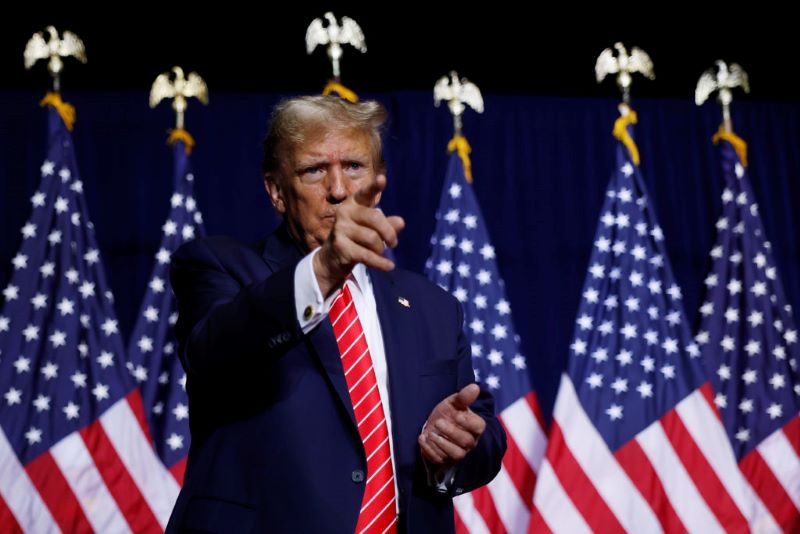U.S.
Trump’s Second Term A Collision Course with the Supreme Court
Trump’s second-term agenda includes controversial proposals such as mass deportations, dismantling birthright citizenship, imposing heavy tariffs, overhauling the federal workforce, and eliminating the Department of Education. These ambitious policies are likely to prompt legal challenges, and the question is whether the Supreme Court will support his agenda or constrain it.
Expanding Executive Power A Legal Challenge Looms
Donald Trump’s most enduring legacy could be the conservative supermajority he solidified on the U.S. Supreme Court. However, a potential second term may place him at odds with the very institution he helped reshape. With his Republican allies firmly in control of both the House and Senate, the court could become a critical counterbalance to his expansive vision of executive power.
A Conservative Court Trump’s Appointees Shape the Future
Trump has appointed three conservative justices—Neil Gorsuch, Brett Kavanaugh, and Amy Coney Barrett—shifting the Court to a 6-3 conservative majority. This shift has resulted in expanded presidential immunity and reduced the influence of regulatory agencies. Legal experts predict that while Trump may face setbacks, his appointees could tilt the Court in his favor, especially on issues like immigration and trade.
Legal Setbacks in Trump’s First Term A Preview of What’s to Come
Despite his conservative appointments, Trump faced a series of defeats at the Supreme Court during his first term. Notably, the Court blocked his travel ban, halted efforts to add a citizenship question to the 2020 Census, and upheld protections for young undocumented immigrants. Approximately 60% of his cases before the Court ended in failure. This history of legal losses raises the question: will a more conservative Court give him the upper hand in his second term?
Will the Court Challenge Trump’s Extreme Proposals?
While Trump’s first-term defeats were significant, the current Court may be more inclined to support his executive actions. A recent ruling granting broad presidential immunity from criminal prosecution for actions taken in office is indicative of the Court’s conservative tilt. However, the Court’s willingness to limit his powers on issues like immigration and tariffs remains uncertain.

Wall Street Banks Score Major Wins as Trump’s Inauguration Nears
Wall Street banks and the largest banks in the nation are experiencing significant gains as Trump promises to reduce financial regulations
Federal Workforce Reforms Legal Hurdles Ahead
One of Trump’s key proposals is reclassifying federal employees under Schedule F, which would make it easier to fire them. Legal experts predict significant legal challenges from unions and federal employees. However, the Court may be inclined to uphold this move, interpreting existing laws as giving the president broad authority over the federal workforce.
Bypassing Senate Confirmation A Constitutional Gray Area
Trump’s second-term agenda includes appointing Cabinet members during congressional recesses, potentially bypassing Senate confirmation hearings. This strategy could face fewer legal challenges but would challenge constitutional norms. The move may spark legal battles regarding the separation of powers between the executive and legislative branches. Such actions could set a concerning precedent for future administrations, testing the limits of executive authority.
A Looming Constitutional Crisis?
The tension between Trump’s executive actions and the Supreme Court’s rulings raises the risk of a constitutional crisis. His history of antagonism toward the judiciary fuels this growing conflict, increasing the likelihood of confrontation. Trump’s willingness to push executive power limits further escalates the possibility of clashes between the executive and judicial branches. This ongoing struggle could test constitutional boundaries in unprecedented ways, leading to lasting consequences.
The Future of Executive Power Uncharted Territory
Legal scholars predict Trump’s second term will test presidential power in unprecedented ways, challenging constitutional boundaries. As his administration faces the Supreme Court on numerous issues, judicial decisions may shift the balance of power. Tensions between the executive and judicial branches are expected to increase, with potential long-term consequences. The outcomes could permanently alter the relationship between these two branches of government.


